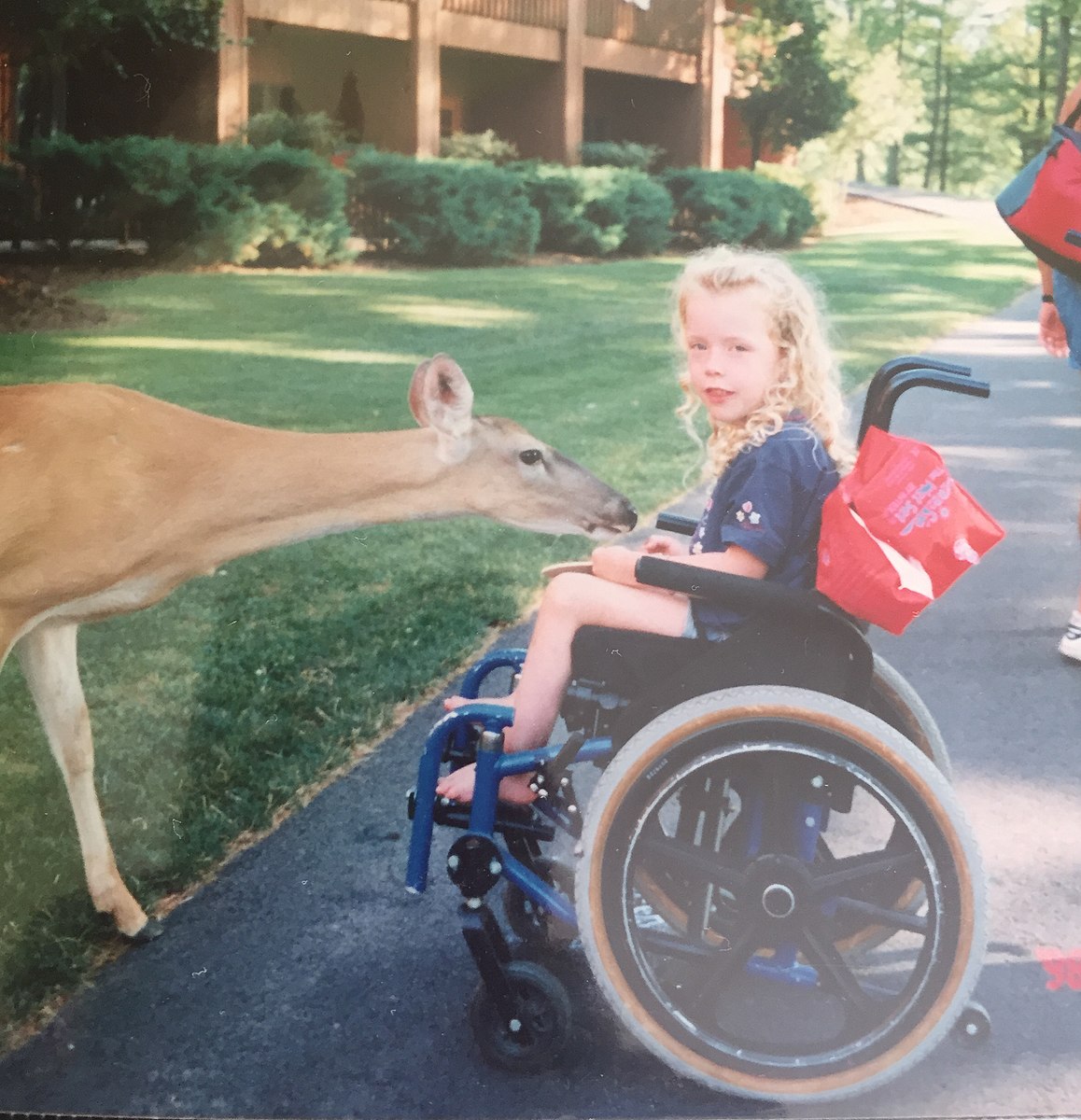Kathleen Downes is a licensed social worker and a trained Wiki Scientist from our recent Wikipedia training course sponsored by the WITH Foundation.

From the time I first learned how to use the Internet in early elementary school, I have always wanted to find out as much as possible about my disability and in turn, help others gain an accurate understanding of life with a disability. Sure, times have changed a bit since my now-dinosaur Compaq desktop and I may spend a bit less time playing Lion King computer games than I did back then—but in the two decades that have elapsed since my first foray into cyberspace, it hasn’t become as easy to find balanced, accurate disability information as one would think. An even more difficult task is finding information written, or at the very least, reviewed, by disabled folks themselves.
Especially in these weird, challenging, thoroughly bizarre pandemic days, it can be difficult to feel inspired to do anything online except post pictures of our pets and play with video chat filters…so when the opportunity arose to improve Wikipedia’s disability content, I was thrilled to have a new quest. Naturally, my first thought was to contribute to an article about cerebral palsy, a topic I have had a front row seat in exploring for literally my entire life. Some would argue it would be too difficult to deliver an objective piece about an area that is so deeply personal.
On the contrary, my personal knowledge of the subject has enabled me to be aware of a wider variety of sound research sources. Furthermore, my interest in disability studies, a field many in the medical realm have never even heard of, has given me the ability to write about disability using language that doesn’t insinuate that disabled people, by default, lead terrible lives. I’ve always had something of an allergy to the phrase “suffer from” in prognosis paragraphs and it has been my pleasure to ensure that the phrase takes a literary perp walk off any of the pages I edit and into the retirement community for Things That Oh God No One Says Anymore. It has also been crucial to me to include in my work on the spastic CP page a sentence or two suggesting that “prognosis” is not only influenced by biology, but can also be influenced by accessibility and policy.
Perhaps the most glaring thing I noticed during this project is the astounding lack of suitable images available in relation to cerebral palsy. As is the case with online images for most disability-related topics, the selection for CP is…less than awe-inspiring.
Lots of disembodied hands, downcast gazes, and people looking sad like they’ve just been told there are no puppy videos left on YouTube. On the other hand, freely licensed disability images can swing to the other extreme: shots of people in wheelchairs (usually vaguely crusty, fake- looking wheelchairs), appearing overly gleeful on a mountainside at dawn or grinning with arms outstretched on a on a miraculously accessible beach with no access mat in sight.
If anyone wants to tell me how these fantasy wheelchairs roll on the beach in Freely Licensed Photo Land, feel free to ping me.

Anyway, back to my point: the pictures representing CP for use in spaces like Wikipedia are just not great. When my instructors suggested I upload a picture of myself to compliment the article on spastic CP, I thought to myself hey, that’s a really good idea. I proceeded to add a picture of myself as a child, when I was decidedly cuter than I am in the present day. I’m feeding a deer in the picture for reasons unknown and casually feeding deer is not an activity that I, nor my CP brethren, presumably do very often. But the point is, the photo is real and shows a whole person living a life with CP. And I hope that some parent whose kid was recently diagnosed will Google spastic CP one day, find my article, and realize it’s not all doom and gloom.
If that happens, my break from posting pet photos will have been well-spent.
Apply for a seat in the upcoming cohort of WITH Wiki Scientists here! The full cost of enrollment in this course is covered by the WITH Foundation.
As conferences and other networking events move online, our virtual course infrastructure offers organizations a way to continue engaging their members. If you’re interested in organizing a customized virtual course, contact Director of Partnerships Jami Mathewson at jami@wikiedu.org or visit partner.wikiedu.org for more information.
